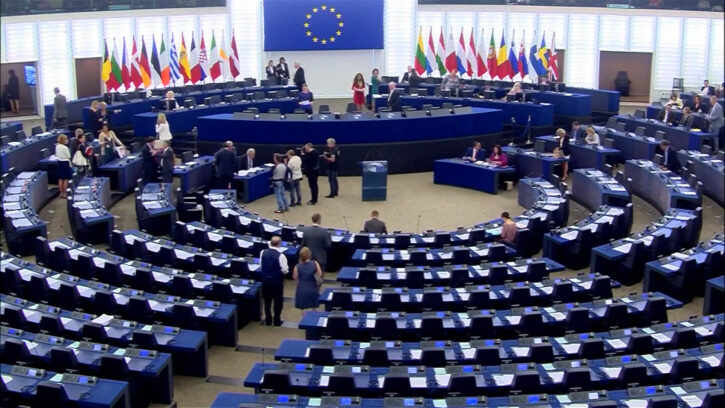
Serbia’s recognition of the Srebrenica genocide is a crucial step on the country’s path towards EU membership, the EU said on Thursday in its report on the EU candidate.
Serbian officials have repeatedly been denying that what happened in Srebrenica during Bosnia’s 1992-95 war was an act of genocide, although that is how two international courts labelled the Bosnian Serb 1995 massacre of more than 8,000 Muslim Bosniak men and boys.
In a recent interview with Deutsche Welle, Serbian PM Ana Brnabic said that the massacre was “a hideous crime, it was a war crime” but “I do not think it was a genocide.”
In its 2018 Commission report on Serbia, the EU Parliament said on Thursday that it “regrets the reiterated denial of the Srebrenica genocide by some Serbian authorities,” and reminded them that fully cooperating with the International Criminal Tribunal for the former Yugoslavia, and its successor the International Residual Mechanism for Criminal Tribunals, also implies fully accepting and implementing its rulings and decisions.
The EP “stresses that the recognition of the Srebrenica genocide is a fundamental step in Serbia’s path toward joining the European Union,” the Report said.
The EP representative who proposed the amendment, Igor Soltes, told N1 that the term “fundamental step” “does not mean a precondition.
“‘Fundamental step’ means that efforts must be made in order to reach a common understanding of past events which are part of European history,” he said.
“Further to this, EU external action is based on and characterized by the respect for international law and, therefore, the ruling of the International Court of Justice and the ICTY must be taken into account and cannot be ignored,” he added.
Serbia’s denial of the genocide is also burdening the country's relations with Bosniaks since the end of the 1992-1995 war.




